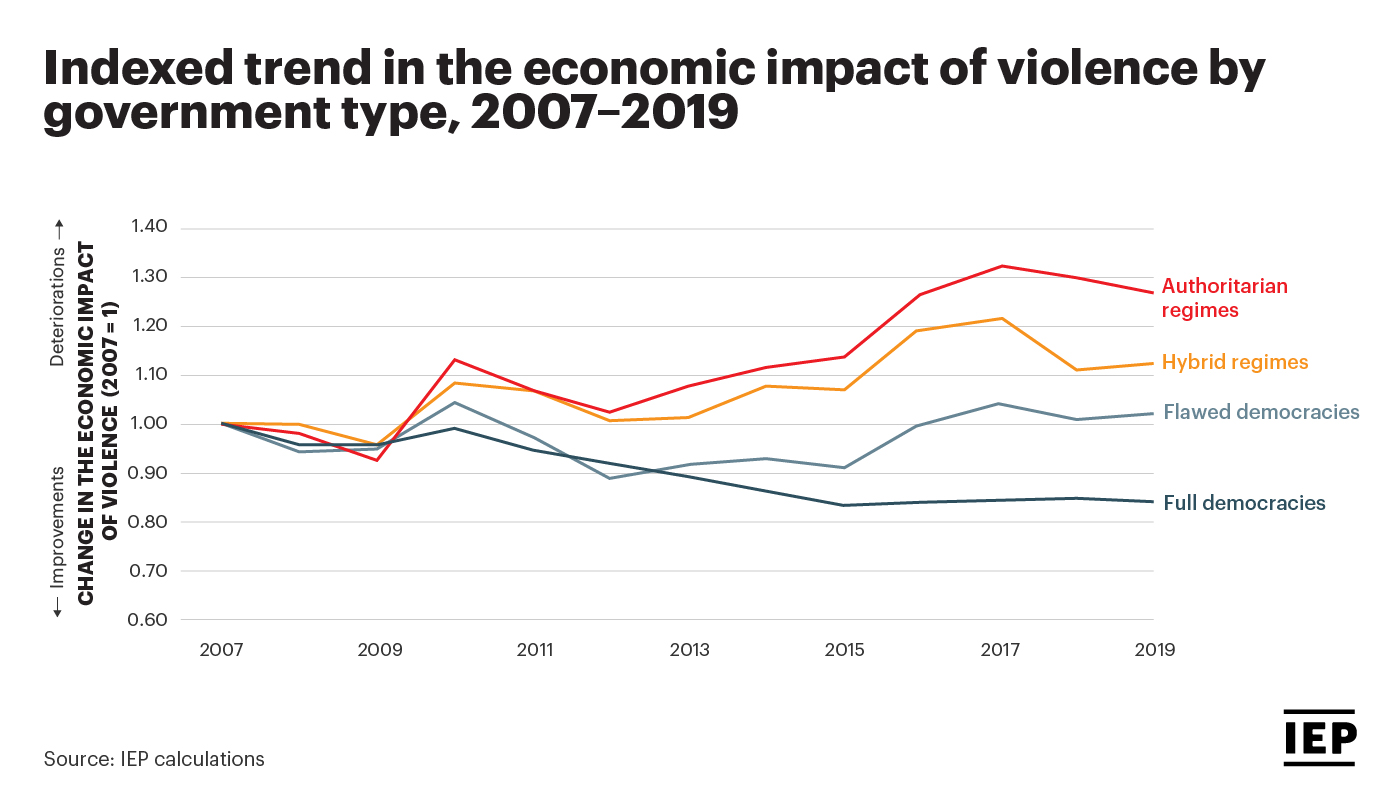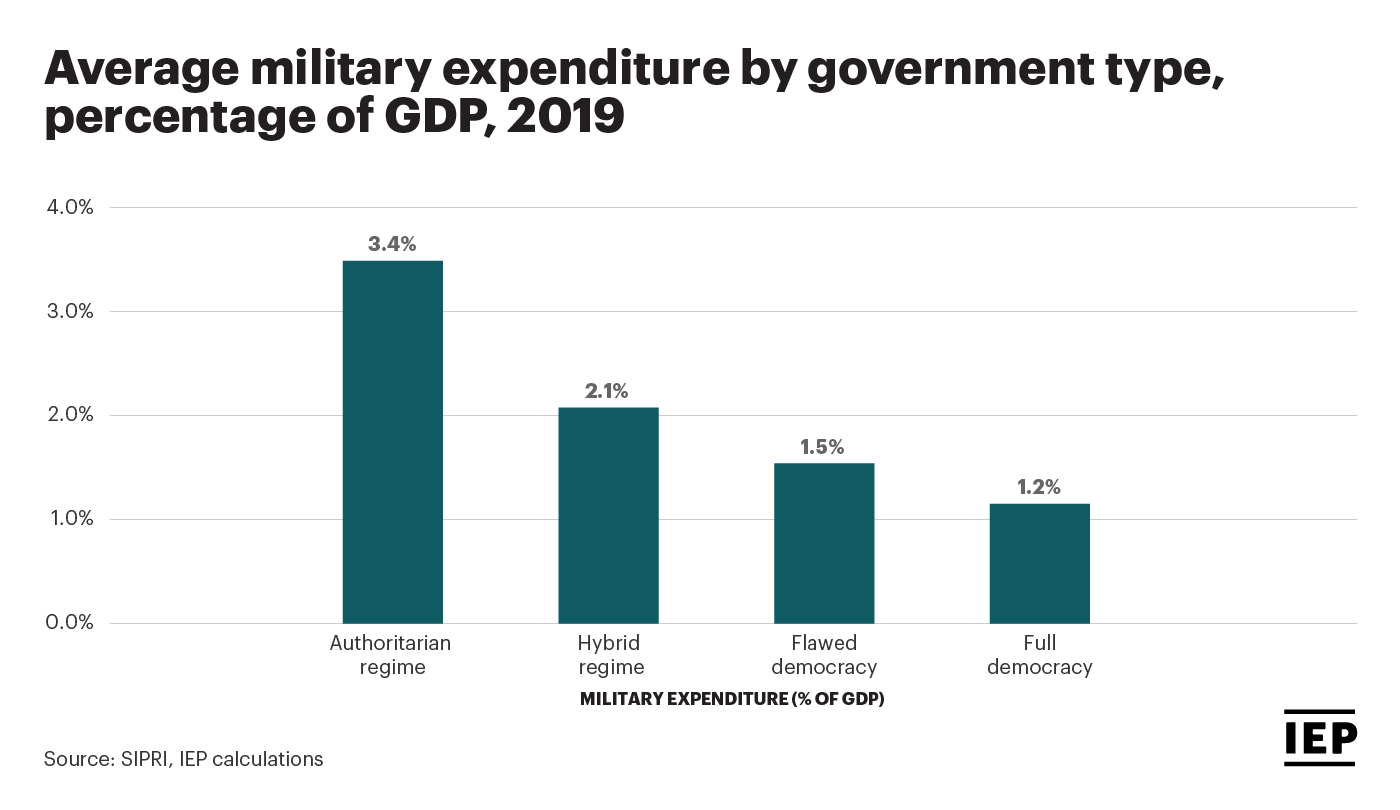Since 2007, authoritarian regimes recorded the largest increase in their economic impact of violence increasing by 27%, while full democracies recorded the largest reduction at 15.9 per cent.
According to the 2021 Economic Value of Peace of peace report, the increase in authoritarian regimes was driven largely by instability and conflict onset between 2007 and 2019.
Improvements seen in full democracies over that time have been largely driven by the reductions in expenditures on the military and private and internal security.
The Institute for Economics & Peace analyses the economic impact of violence across four government types: authoritarian regimes; hybrid regimes; flawed democracies; and full democracies.

While full democracies recorded a decrease in the economic impact of violence, the remaining four government types recorded increases since 2007, with authoritarian ones showing the largest increase.
The report also analysed the level of military expenditure across government types in 2019 to find that authoritarian regimes exceed all other government types.

In 2019, on average, authoritarian regimes spent far more on their militaries at 3.4% of gross domestic product compared to the 1.2% spent by full democracies.
Not only do authoritarian regimes spend more on their military, but their populations also have lower confidence in the military. On average, 26.8% of the population of authoritarian regimes do not have confidence in the military compared to 17.6% of full democracies.
The 2021 Economic Value of Peace report estimates the global the economic impact of violence.
In addition to causing suffering, interpersonal violence, social unrest and collective violence hinders productivity and economic activity, destabilises institutions and reduces business confidence.
Violence disrupts the economy, resulting in adverse and ongoing negative effects even after conflict subsides.